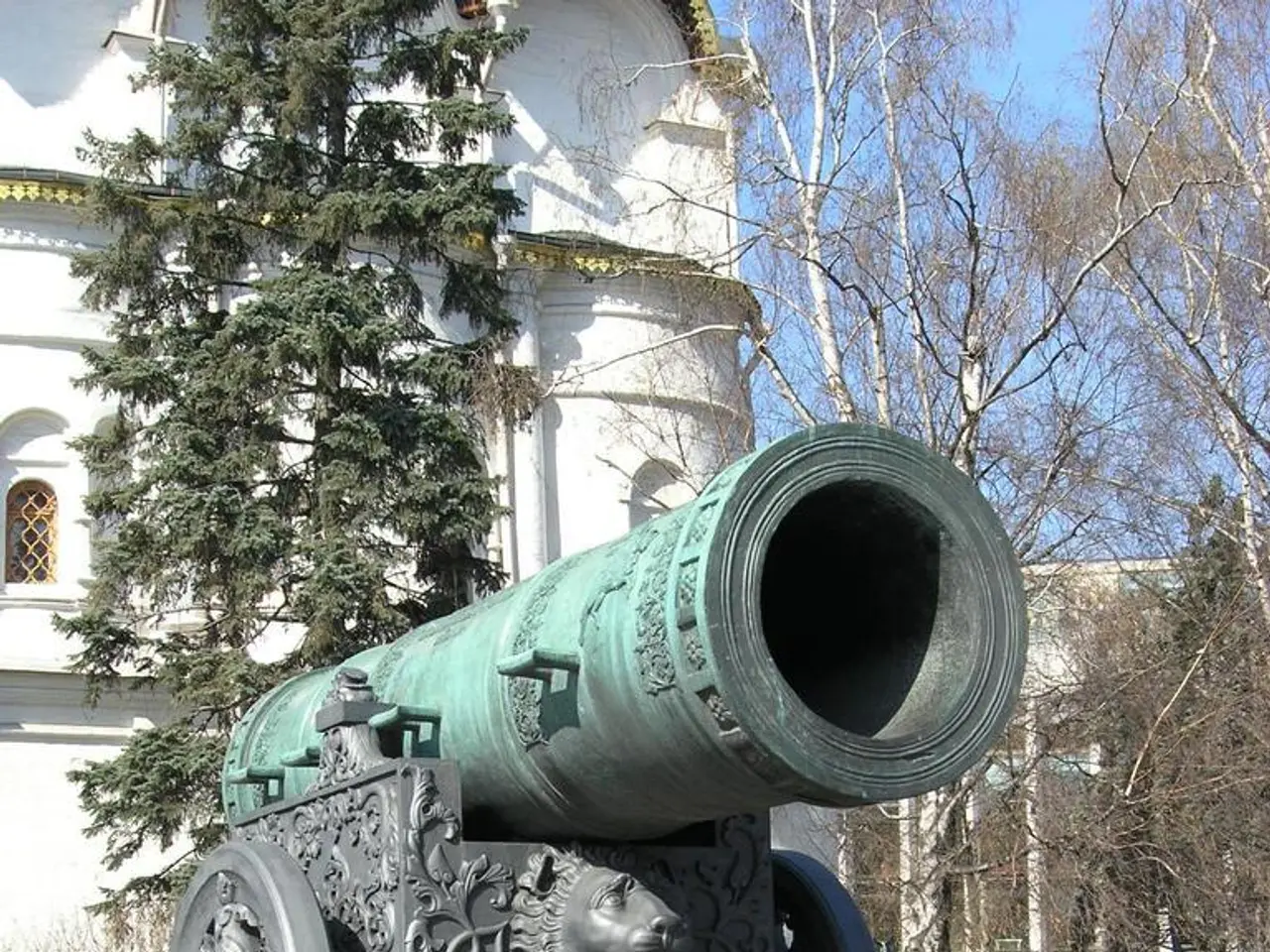Moscow abandons land-based nuclear missile support
In a move aimed at deterring potential Russian action, the United States has announced plans to deploy various weapons in Germany, including Tomahawk cruise missiles. The details of the deployment timeline and exact locations remain unclear.
This decision comes in response to Russia's withdrawal from the Intermediate-Range Nuclear Forces (INF) Treaty in August 2025. The collapse of the INF Treaty, signed by Mikhail Gorbachev and US President Ronald Reagan in 1987, has significant security implications, increasing regional and global tensions.
Russia's withdrawal and subsequent deployment of U.S.-countered missiles in Europe have eroded the post-Cold War arms control framework and endangered other agreements like New START, threatening broader strategic stability. Russia's deployment of nuclear-capable missiles, such as the Oreshnik in Belarus and the continued use of Iskander systems in Kaliningrad and Ukraine, directly threatens NATO countries in Eastern and Central Europe, putting capitals such as Warsaw and Berlin within range.
The deployment of intermediate-range missiles on European soil by both the U.S. and Russia risks further regional destabilization, especially in frontline states like Ukraine and the Baltics. This dynamic complicates security environments and military postures across the continent, making the European security landscape more volatile and unpredictable.
It is important to note that the INF Treaty provided for the elimination of all land-based ballistic missiles and cruise missiles with a shorter range of 500 to 1000 kilometers and a medium range of 1000 to 5500 kilometers. The deployment of Tomahawk missiles, which can be nuclear-armed, is a response to this shift in the strategic landscape.
The US is also planning to deploy SM-6 air defense missiles in Germany. However, the exact nature of these new hypersonic weapons, which can reach further than previously stationed land-based systems, has not been specified.
Russia has announced that it will no longer adhere to the INF Treaty on the ban of land-based nuclear short- and intermediate-range missiles. Vladimir Putin has already threatened to react "mirror-like" to the planned stationing of US missiles in Germany in 2026.
The US had already withdrawn from the INF Treaty in 2019, citing long-standing complaints about Russian violations of the treaty. After the US withdrawal, Russia had continued a moratorium on adhering to the INF Treaty, but has now officially ceased to do so.
The Kremlin has stated that the reason for this is the stationing of land-based nuclear short- and intermediate-range missiles from US production in Europe. Russia has already stationed nuclear-capable Iskander missiles in the Kaliningrad enclave, which can hit German cities with their intermediate-range.
These developments make the European security landscape more volatile and unpredictable, and the potential for a sudden or accidental nuclear conflict due to shorter missile flight times and ambiguous warhead payloads remains a concern. The U.S. has also invested heavily in advanced missile defense systems to potentially neutralize Russian nuclear capabilities, although the effectiveness of such systems remains debated and costly.
References:
- https://www.reuters.com/world/europe/us-nato-signals-plans-deploy-intermediate-range-missiles-europe-2021-03-23/
- https://www.brookings.edu/research/the-inf-treaty-collapse-and-the-risk-of-nuclear-war-in-europe/
- https://www.washingtonpost.com/world/europe/russia-says-it-will-no-longer-adhere-to-inf-treaty-on-ban-of-land-based-nuclear-short-and-intermediate-range-missiles/2025/08/02/886e51e2-a0d3-11eb-8a0a-d3037c962f82_story.html
- https://www.reuters.com/world/europe/russia-says-to-deploy-new-hypersonic-missiles-amid-inf-treaty-collapse-2025-08-03/
- https://www.cnbc.com/2019/08/02/us-withdraws-from-inf-treaty-over-russia-violations.html
The European Union and its Member States, particularly those in Eastern and Central Europe, are closely monitoring the escalating war-and-conflicts situation in Europe, as the deployment of various weapons by the United States, such as Tomahawk cruise missiles and SM-6 air defense missiles, in response to the collapse of the Intermediate-Range Nuclear Forces (INF) Treaty, poses political and general-news implications for the region. Russia's withdrawal from the INF Treaty, officially ceased in August 2025, has significantly deteriorated the post-Cold War arms control framework and threatened broader strategic stability, as exemplified by Russia's deployment of nuclear-capable missiles like the Oreshnik in Belarus and Iskander systems in Kaliningrad and Ukraine, which directly endangers NATO countries in the region, such as Warsaw and Berlin. The potential for a sudden or accidental nuclear conflict due to shorter missile flight times and ambiguous warhead payloads remains a concern.





